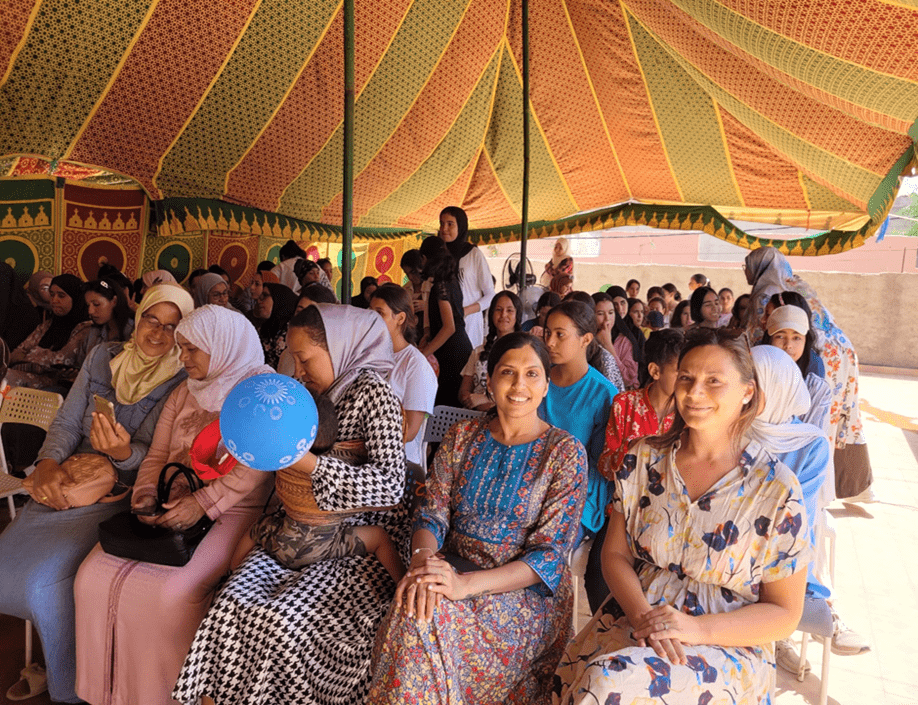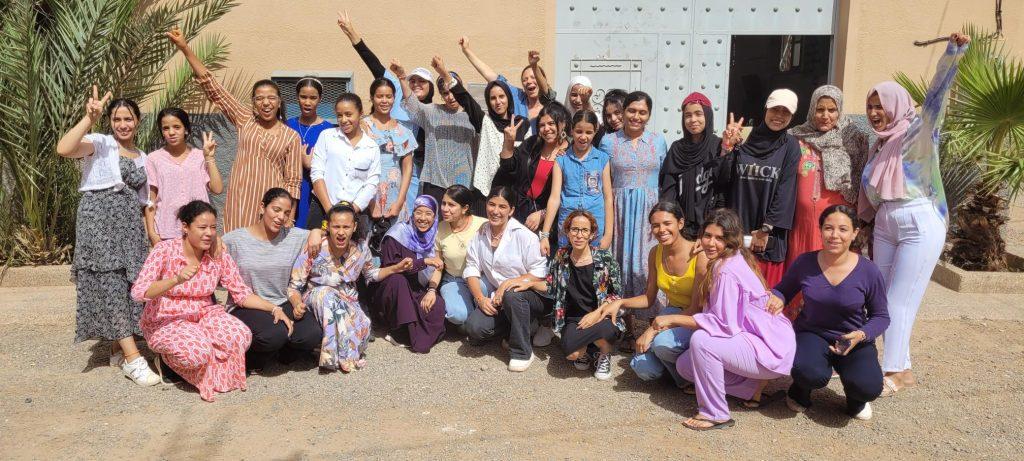A Week in the Life as a Project Assistant. In Estonia (Where else?)
by Mia Brygger, Project associate A depiction of my maiden voyage, as a representative for Crossing Borders, travelling to Estonia for the finalization of an Erasmus+ strategic partnership project, that aims at enabling teachers to include more design thinking into their work. In collaboration with Educraftor, Tartu Kunstikool, Tallinna Kunstigümnaasium (TKG) and Modern Didactics Centre, we met at TKG outside of Tallinn for a three day “meet and let’s finish a two-year project in style”. My week started at CPH airport. The day before. Project coordinator from Crossing Borders and all-round hard worker, Rosie, had invited me to Estonia to take part in the last stages of the project. Who was I to say no to that?! It was an opportunity to witness firsthand how a project collaboration between nations and schools can result in new ways of educating youth, and of course, a great way to discover a new cultural setting. The trip was quite a learning experience for me. Fun, challenging and eye-opening. With lots of crazy events along the way. Creepy portraits and bumpy hallways The hotel itself was an tale worth telling; St. Olav, located in the Old Town (Vanalinn) part of Tallinn, was an old building propped up between a strip club/karaoke bar and a beauty salon. Four floors, each floor consisting of long winding hallways and staircases leading to other staircases and bumpier hallways. You could easily trip over dusty, antique furniture scattered throughout the hotel or get lost staring at the creepy portrait gallery decorating each hallway. The whole vibe of the hotel was one of mystery, murder and aristocratic oppulence. That is, if this was the 19th century. In 2023 it seemed more rundown than luxurious. It did prove a novelty stay and an entertaining topic of conversation, though. Lazy craftmanship or fun for the whole family? Night tour in old town Assistant duties and cheese on fish?The next morning we went to Tallinna Kunstigümnaasium, a few kilometres north of Tallinn, where we would meet up with the partners and go over the results of the project. Rosie was kind enough to pay for our transportation all week; I didn’t get to repay her generosity except for being a willing assistant, who was always ready to carry whatever s%¤#, she couldn’t be bothered to carry. Just kidding, she always asked, if I would carry her s¤%+. That’s the life of an assistant, I guess. The first day at the school was a hectic one, with presentations from the partners and a online audience tuning in from all parts of the world: Italy, Marocco, Georgia, Jamaica, Poland etc. The day ended with lunch in the school cafeteria, where we were served fish covered in what appeared to be cheddar cheese. Weird choice for a fish dish, but it tasted okay. Anna, the project manager and a teacher at TKG, suggested we all have dinner together at Olde Hanse that same night; A medieval restaurant serving centuries old recipes (but not centuries old food). Not joking, the food was some of the best, I’ve ever had and unlike anything I’ve ever tasted. As a civilian, that has never been involved with an Erasmus+ project before, I was delighted to spend time with the partners and share cultural experiences with each other. We crossed borders indeed and had a lot of fun. Hard-at-work-Rosie Happy partners Cheesy fish dish Previous Next Reality sets in and we paint cats!The following day we had a group meeting with the partners to divide the last tasks of the project. I was also discovering that working with other organizations and people from different cultural backgrounds is inspiring and fun. It can be challenging at times, but it’s a wonderful lesson in compromise and camaraderie. Even though my tasks were limited, Rosie had been considered enough to forget to bring a bag for her computer, so the least I could do, was act as her pack mule. The day ended back at the hotel, before we set out for the evening’s grand adventure: A paint class! Anna had arranged for the remaining partners (and the sole assistant present: me) to take a paint class. I would like to say, that it was great fun (and it was), but mostly it was fun, because everyone was really on point in sarcastingly stating, how exhaustingly difficult the class was. The inferiority complexes setting in, while we were trying to mix colors and getting the composition right, were punctured by the snarky laughter, that followed our feeble attempts at creating art. At least we got to take our painting home with us. I will use mine as a torture device, should I ever need one. Rosie was having a bad angle day Creative genius at work Artsty kids and goodbye to the partnersOn our last day at TKG we wrapped up the final tasks and had an early lunch. And then a concert followed. With high expectations in tow, we set off…. towards the gym where student bands were ready to blow us away with cover versions of Amy Winehouse and Arctic Monkeys songs. They did good, and mostly hit the right notes, but there was one group, that delighted us all. A group consisting of five young women; sheathed in punkish attire and piles of make-up, took to the scene and started performing……an Estonian folk song..? Okay. Not what I was expecting, but their dedication to the performance and the goth-like girl with long, dark hair, in a Slayer t-shirt, playing the triangle with such detached focus and intensity, blew my Nordic mind. That was exactly the Baltic vibes, I had hoped to encounter in Estonia. Time to reflect and head homeOn our last night, Rosie and I had a magnificent dinner at Rataskaevu 16, where we gorged on elk roast and fancy desserts with various sirups and fruits. Not a bad way to end a successful trip. We headed home for the last time to our murder-mystery hotel and
A Week in the Life as a Project Assistant. In Estonia (Where else?) Read More »











